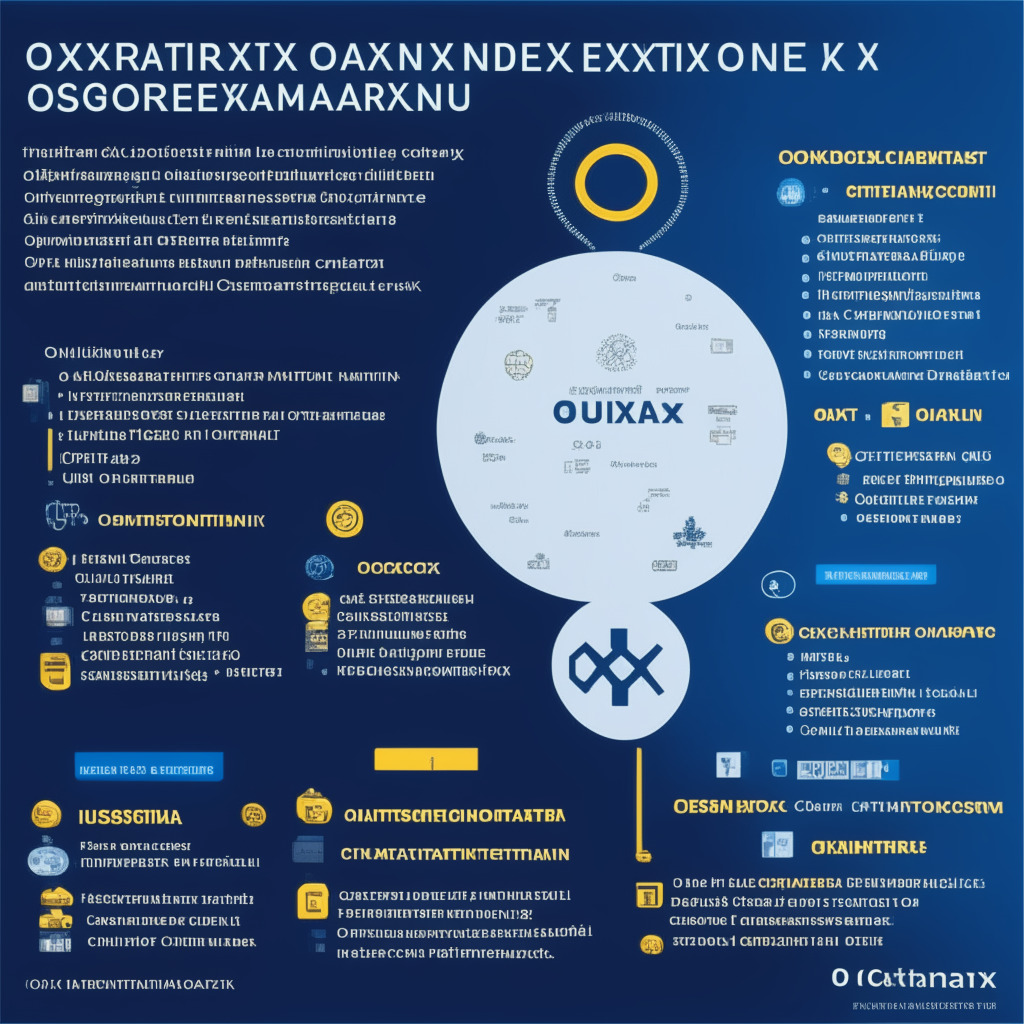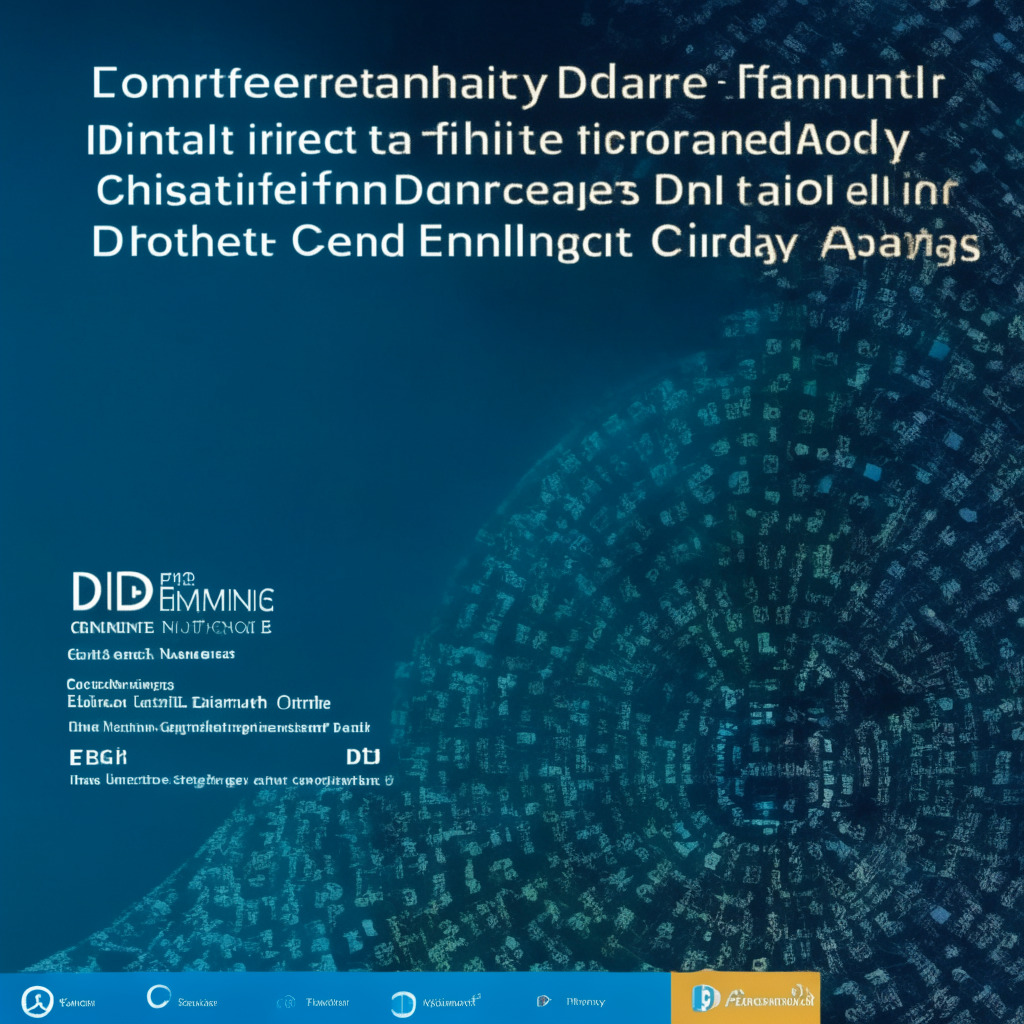Ondo Finance, an asset tokenization platform, is extending operations to the Polygon network. This expansion aims to meet increasing demand for tokenized financial instruments like US Treasuries, given their higher yields compared to decentralized finance markets. Ondo’s tokenized US government bond and intended yield-generating stablecoin will port to the Polygon network, a move mirroring asset management giant Franklin Templeton’s strategy.
Search Results for: Ondo Finance
Blockchain’s Rising Star in Global Finance: A Glimpse at India’s NPCI and London Stock Exchange Group’s Approach
“India’s National Payments Corporation is recruiting a blockchain expert, indicating a growing faith in blockchain’s potential in finance. Concurrently, the London Stock Exchange Group is leveraging blockchain to create a platform for traditional financial assets, possibly becoming the first major global exchange to establish a blockchain-powered ecosystem.”
Bitcoin & Street Art: An Unconventional Crusade Against Traditional Finance Systems
Barcelona-based Street Cy₿er collective, comprising artists, activists, and bitcoin enthusiasts, is spreading Bitcoin-inspired graffiti across major European cities. By challenging the status quo and advocating for a decentralised financial future, they use art to invite a dialogue around Bitcoin and its potential global impact. Their creations range from calls for Bitcoin-funded education to predictions of a future of peace due to Bitcoin’s scarcity and transparency.
Dark Banker of London: The Ups and Downs of the Crypto Scene Amidst International Crime Allegations
“London-based fintech magnate, Caio Marchesani, is accused of laundering money for criminals through a cryptocurrency exchange. His operation allegedly utilized the anonymity provided by the crypto arena, shuffling funds to hide their illegal origin. Meanwhile, Binance cooperates with the investigation, highlighting crypto’s susceptibility to misuse and the growing intersectionality of tech and regulation.”
London Stock Exchange Dives into Blockchain: A Paradigm Shift or a Risky Gamble?
The London Stock Exchange Group (LSEG) is moving forward with plans to implement an “end-to-end blockchain-powered” lifecycle for financial assets. This revolutionary initiative aims to facilitate a more streamlined, cost-effective, and regulated process not focused on cryptocurrencies, but on the technology behind them.
Blockchain Revolution in Traditional Asset Trading: The London Stock Exchange Leap and Its Implications
London Stock Exchange (LSE) Group is aiming to revolutionize traditional asset trading with the incorporation of blockchain technology. This new system proposes a smoother, cheaper, and more transparent process for handling traditional assets, ensuring reliability for investors. However, the integration faces hurdles, including security concerns and effectiveness of legacy systems with new technologies.
London Stock Exchange Paves Runway for Blockchain Integration, Sans Cryptocurrencies
The London Stock Exchange Group is preparing to integrate blockchain technology into its trading procedures for traditional financial assets. This follows a year of research into the feasibility of combining conventional markets with blockchain’s transparent infrastructure. However, the proposed system will exclude cryptocurrencies, focusing on using blockchain to increase efficiency.
Beyond the $740 Million Scandal: The Tangled Web of Traditional Finance and Cryptocurrencies
The scandal involving Singapore’s largest money-laundering case, featuring the clandestine conversion of wealth into luxury goods and Tether stablecoins, underscores both the potential abuse of cryptocurrencies and the urgent need for robust regulation in the crypto industry. This case emphasizes the complexities of monitoring financial crime and calls for continuous vigilance, transparency, and strong governance within the crypto and broader financial landscape, especially moving towards a blockchain-powered future.
Imperial College London and FluidAI Tackle Crypto Liquidity Challenges: A Leap Forward or a Risky Venture?
Imperial College London’s AI lab is collaborating with AI startup FluidAI to address liquidity aggregation, a key issue in the crypto space. Despite scepticism, FluidAI CEO, Ahmed Ismail, believes AI could potentially enhance the “tokenised market” by overcoming latency in bid/ask prices, improving liquidity. However, over-reliance on AI prediction models could risk market distortions.
European Premier: The Launch of Bitcoin ETF and What It Means for Global Finance
Jacobi Asset Management has launched Europe’s first Bitcoin exchange traded fund (ETF), listed on EuroNext Amsterdam Exchange. The product aims to drive Bitcoin adoption among institutional investors, levying a 1.5% annual management fee. The ETF also represents a move from Europe’s prevalent Exchange Traded Notes (ETNs), while committing to minimizing Bitcoin’s carbon footprint.
Unleashing the Potential of Tokenization: A Revolutionary Shift in Global Finance
“Tokenization transforms tangible or intangible real-world assets into virtual investment vehicles on the blockchain. Stocks may be traded round-the-clock, much like cryptocurrency. While tokenization sounds transparent and risk-free, it has potential pitfalls. However, traditional financial institutions can’t ignore the potential benefits of blockchain any longer.”
a16z Crypto’s Bold Move to London: Global Expansion or Regulatory Risk?
A16z crypto, the crypto investment arm of Andreessen Horowitz, announced the opening of its first overseas office in London. Despite recent regulatory crackdowns, this expansion shows confidence in the future of digital assets and reflects the firm’s commitment to supporting blockchain adoption globally.
OKX and Komainu Partnership: Bridging Crypto and Traditional Finance, But at What Cost?
OKX partners with digital asset storage firm, Komainu, to offer institutional users secure cryptocurrency storage and trading. This collaboration aims to create a vertically integrated system, minimizing the risk of catastrophic events while bridging the gap between traditional finance and crypto exchanges. However, concerns regarding centralization and privacy emerge with Komainu’s access to sensitive client data.
Exploring the Rise of Tokenized Treasurys: Huge Market Growth vs Security Concerns
“Blockchain-based investment products that turn U.S. Treasury bills, bonds, and money market funds into tokenized forms amass a market value of $614 million, with the potential to reach $5 trillion over the next five years. However, the tokenizing assets trend needs regulatory oversight and potential market manipulation consideration.”
Crypto Superapp Finblox Enters Tokenized T-Bill Market: Opportunities and Challenges Explored
Crypto investment platform Finblox enters the tokenized U.S. Treasury bills market, aiming to position itself as a “crypto superapp” offering various financial services. The flourishing $500 million asset class allows investors to allocate stablecoins in short-term government bonds for safer returns.
Rising Popularity of Tokenized Money Market Funds: Boon or Bane for Crypto Market Stability?
The surge in popularity of tokenized money market funds indicates a shift in the perception and utilization of crypto investments. Offering relatively safe ways to earn a yield, these funds attract digital asset investment funds, crypto companies, and DAO treasuries, signifying a continued merging of blockchain technology with traditional finance.
Redefining Value: The Digital Frontier of Tokenized Real-World Assets
“Tokenized real-world assets are becoming mainstream with firms like Coinbase, Circle, and Aave forming the Tokenized Asset Coalition to promote the transition to decentralized finance. Predictions estimate tokenized assets reaching $16 trillion by 2030. Meanwhile, key financial entities globally are considering or offering crypto-related services, signifying a pivotal switch in financial systems.”
The Ongoing Evolution: Blockchain’s Intriguing Trajectory and Information Overwhelm Challenge
“Prominent firms SOMA Finance, MANTRA, and Tritaurian Capital are set to launch the first legally issued digital security for global and U.S retail investors via their SOMA token. Meanwhile, Bitget introduced “Snowball”, a tool for structuring investments, offering both principal protection and up to 24.5% APR. In other news, Microsoft has released four AI compilers aimed at optimizing AI models’ performance.”
Grayscale’s Push for Bitcoin Spot ETF: A Potential Market Game Changer or Overestimated Bullish Belief
“Yesterday, Bitcoin’s price noted a slight increase as Davis Polk, a legal firm, vigorously pushed for the SEC’s approval of the Bitcoin spot ETF. This news could potentially expand investment opportunities and enhance the liquidity of the crypto market. However, analysts believe that the crypto market hasn’t yet reflected this bullish perspective in Bitcoin’s prices. Amidst this, high-net-worth individuals are showing increased interest in Bitcoin, further elevating its financial footprint.”
Navigating FinTech’s Double-Edged Sword: Nexo’s Dual Mode Crypto Card’s Triumphs and Roadblocks
Nexo, in partnership with Mastercard, recently launched the first “Dual Mode Crypto Card”, providing crypto-based debit and credit services in the European Economic Area (EEA). It promises added user benefits but also faces regulatory challenges, exposing the delicate balance of crypto innovation and legal compliance.
Green Shift or Market Misstep? Europe’s First Article 8 Bitcoin ETF Challenges and Opportunities
The European first-of-its-kind Bitcoin ETF dubs itself as ‘environmental investing’, following the European Union’s environmental, social and governance investing standards. However, critics express scepticism regarding the sustainability of this model due to Bitcoin’s massive energy consumption. These contrasting stories capture the dynamism of the crypto market.
Ripple’s Strategic Move to UK: Promising Regulatory Clarity or Risky New Challenge?
“Ripple is seeking to establish a firm footing in the UK, applying for registration as a crypto asset firm with the UK’s Financial Conduct Authority. This move comes after Ripple’s partial legal victory in the US concerning the classification of its XRP token. However, potential UK legislation targeting illegal crypto usage poses new challenges.”
Delayed Launch of Europe’s First Spot Bitcoin ETF: An Analysis of Market Impacts & Regulatory Tensions
Europe’s first spot Bitcoin ETF, initially planned for 2022, has been delayed to 2023 due to unprecedented market circumstances like the collapse of the Terra-Luna ecosystem and the FTX fall in 2021. Jacobi Asset Management’s Bitcoin ETF contrasts with conventional exchange-traded notes as it emphasizes asset ownership for shareholders, presenting a shift in Europe’s crypto market. Meanwhile, the SEC denies spot Bitcoin ETFs despite crypto-backed financial shifts globally.
Israel’s New Crypto Tax Bill: Encouraging Investment or Stifling Decentralization?
Israel’s parliament is considering a bill that aims to incentivise the crypto industry by extending tax benefits of high-tech companies to crypto businesses. Proposed benefits include exempting foreign residents from capital gains taxes on cryptocurrency sales and cutting tax on crypto-related employee options from 50% to 25%.
Unified Ledger: Merging CBDCs and Tokenized Assets for a Financial Revolution
The future of finance could involve a unified electronic ledger merging central bank digital currencies with tokenized assets, streamlining transactions and improving global financial systems, according to a Bank for International Settlements report. Key benefits include automated smart contracts, reduced trade costs, and seamless cross-border operations.
Binance’s European Exodus: Sign of Sinking Ship or Resilient Adaptation?
Binance, the world’s largest crypto exchange, faces legal complications with global financial watchdogs, leading to key European executives departing the company. This raises questions about Binance’s long-term stability in the European market and highlights the importance of market research before investing in cryptocurrencies.
Bank of England Inches Towards CBDC: Exploring Pros, Cons, and Privacy Concerns of Britcoin
The Bank of England and the BIS completed a yearlong project, Rosalind, exploring the practicality and potential benefits of a Central Bank Digital Currency (CBDC). Findings suggest CBDCs could expedite person-to-person payments, enable innovative financial products, and reduce fraud, paving the way for the Digital Pound, informally known as “Britcoin.”
Tokenization Trend Booms: $220M Market Cap, DeFi Integration, and Regulatory Challenges
Tokenization of financial securities on the blockchain is gaining momentum, with a market cap of over $220 million. Firms like Matrixport, Backed Finance, Ondo, and Franklin Templeton create tokenized government bonds and ETFs, predominantly on Ethereum. This trend enables new opportunities, improved lending efficiency, and promises innovation in finance; however, it requires a supportive regulatory landscape to reach its potential.
EY’s Ethereum Platform for Carbon Tracking: The Pros, Cons, and Future Implications
EY unveils an Ethereum-based platform, EY OpsChain ESG, aimed at tracking carbon emissions and carbon credit traceability for enterprises. The platform emphasizes sustainability and environmental, social, and governance measures, leveraging tokenized emissions inventory to enable transparency and progress measurement. However, blockchain’s energy-intensive nature and reliance on carbon credit tokens invite criticism and warrant careful analysis.
EU’s MiCA Crypto Regulation: Inspiration for US Policy or Hindrance to Growth?
The European Union’s crypto regulation, Markets in Crypto Assets (MiCA), garners global attention, including from the SEC commissioner Hester Peirce who suggests MiCA could inspire the United States. A unified regulatory approach could foster innovation, customer protection, and potentially boost the crypto industry’s growth, provided there’s close collaboration and adaptation.
Debating Anonymity in Digital Pounds: CBDCs vs Cryptocurrencies in the UK
At a recent Financial Times Cryptocurrency and Digital Assets Summit, Tom Mutton, the Bank of England’s head of fintech, discussed the UK’s plans for a central bank digital currency (CBDC) focusing on privacy and anonymity. While emphasizing privacy, Mutton stated that anonymity would not be intended for the digital pound and it would not be interoperable with cryptocurrencies. The Bank of England’s approach raises questions on the role of anonymity, privacy, and interoperability in the financial ecosystem.





























